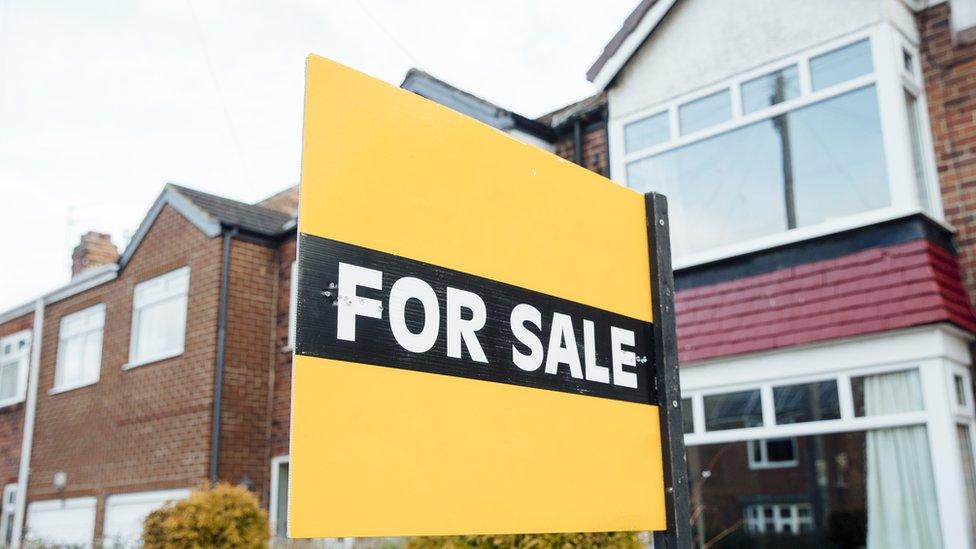Coronavirus: Northern Ireland car and house sales hit by outbreak
- Published

Sales of new cars in Northern Ireland fell by 56% in March compared to the same month last year.
Car sales are a closely watched measure of consumer spending in NI as there is no official monthly retail data.
The figures are therefore one of the first indications of how non-essential consumer spending has been hit by the coronavirus crisis.
The figures are compiled by the Society of Motor Manufacturers and Traders (SMMT).
More than 7,000 new cars were sold in March 2019 compared to 3,129 this year.

A SIMPLE GUIDE: How do I protect myself?
AVOIDING CONTACT: The rules on self-isolation and exercise
LOOK-UP TOOL: Check cases in your area
MAPS AND CHARTS: Visual guide to the outbreak

"With the country locked down in crisis mode for a large part of March, this decline will come as no surprise," said SMMT chief executive Mike Hawes.
"We should not, however, draw long-term conclusions from these figures, other than this being a stark realisation of what happens when economies grind to a halt."
Northern Ireland house sales website PropertyPal has also said that the number of properties coming onto the market in the last two weeks is down 60% on the same time last year.
The company's chief economist, Jordan Buchanan, estimates that sales for the second quarter of this year will be down by 70%.
Mr Buchanan said it was too early to assess the impact on prices as that would depend on the broader economic picture.
Serviced office firms call for support
Meanwhile, Northern Ireland business groups have said that coronavirus grant support should be extended to firms who operate from serviced offices or co-working spaces.
Thousands of small firms have begun to receive £10,000 grants from Stormont.
Eligibility is based on the payment of commercial rates.
However, firms in serviced offices usually do not pay rates, instead that cost is reflected in the overall fee paid to the landlord.
Co-working spaces and serviced offices had become a growing part of Belfast's office market, particularly for small firms and sole traders.

In a letter to Stormont ministers, 12 business organisations have said those firms should not be forgotten.
They also call for social enterprises and charities to be brought into the scheme.
The letter states: 'We cannot imagine that when the grant scheme was designed that it was the intention of the executive to exclude such businesses and social enterprises."
They suggest that if it is not technically possible to extend the scheme then a separate emergency support programme should be set up.
It is expected that about 2,500 small manufacturing firms, that had also been excluded from the grants scheme, will now be included.
Enterprise Minister Diane Dodds is bringing a proposal to the executive.
- Published6 January 2020
